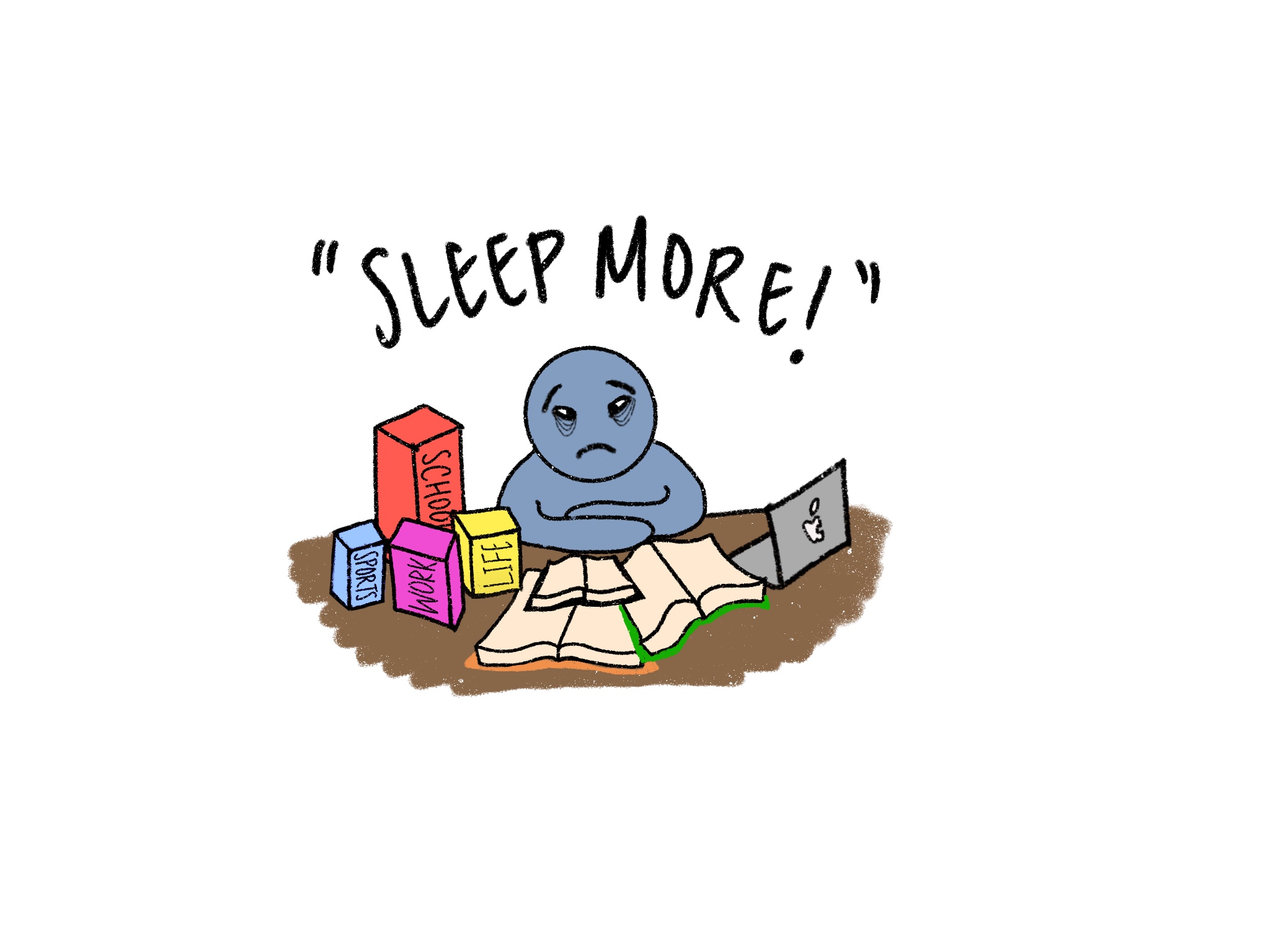“You should get more sleep.” This is perhaps Deerfield’s most frequent advice to its students — but has Deerfield taken responsibility for this statement and what it entails? Does it have a comprehensive action plan to make this statement a reality in the daily lives of Deerfield students? These are questions that we should ask ourselves and, more importantly, the school.

Recently, Assistant Head of School for Academic Affairs Dr. Ivory Hills, sent out a “Sleep and HW” survey to students to assess the impact of the changed Daily Schedule on sleep deprivation. I appreciate the intention behind the survey, but more factors could have been taken into consideration.
The administration took a whole school average of the collected data, which fails to account for significant variation in homework load between grades. According to Dr. Hills, half of the student body (390 respondents) gets seven and a half hours of sleep every night.
Yet in a grade-wide survey (with 95 respondents) conducted by Student Council member Zoe Matias ’23, 63.8% of juniors get six hours or less of sleep per night. In the same survey, 91.6% of juniors responded that people would sleep more if less work was assigned, 81.9% responded that their workload affected their mental health, and close to 90% are “super stressed,” compared to around 10% who are “chilling.”
This introduces the second problem: the administration has not established a conclusive action plan, including guidance and resources for more sleep. Many students mistakenly believe that Mental Health Days, when students call in sick to the Health Center to stay during the school day, are an official school support system. Students have been turned away from the Health Center after attempting to take a Mental Health Day. The school needs to clearly communicate the support that is actually offered at the Health Center so students can utilize them accordingly.
Deerfield students with attention disorders struggle even more than most students, and tend to get even less sleep due to the specific difficulties they face. Although Deerfield does give testing accommodations and extensions, it seems to lack 1:1 support for students with attention disorders; if there is any, students remain unaware. One of my friends, who has ADHD, explained that she felt balancing her life at Deerfield was “harder, and more distracting” than for others because she tends to “stray” from completing her work, which significantly affects her performance both inside and outside of the classroom. According to this person, they chose to not let their teachers know about their attention disorder for fear of stigma. When asked about resources available to them on campus, the student said that their only options are either to have prescribed medicine or a connection to medical personnel back home.
According to the New York Times, sleep deprivation stems largely from anxiety. This is to be expected, since Deerfield is a gathering of ultra-competitive students who take pride in doing well in their respective areas of talent. Many students are also painfully aware of the fact that the road to their dream college will be a battlefield where they will have to step over their peers. The College Advising Office started group meetings in early October as opposed to during or after the winter, which heightened anxieties about standardized testing and the college process. All this distraction can lead to hours of unproductivity.
Each grade should have a designated meeting to gather together and directly express their concerns to a panel of faculty members representing various school offices, which would help the administration understand sleep deprivation and take measures in response. To address student procrastination, the Administration and the Academic Affairs Office could form a Student Advisory Committee, which would consist of high-performing students who could give advice to other students regarding time management and academic success. Deerfield students would be able to access helpful resources for their own academic improvement without fearing the judgement of seeking advice about procrastination from faculty.
Although students have a responsibility to control procrastination and time management, the administration should actively help to control uncontrollable contributors to sleep deprivation, such as homework load and student support; they should not put the burden of solving a multifaceted problem entirely on the shoulders of students.

